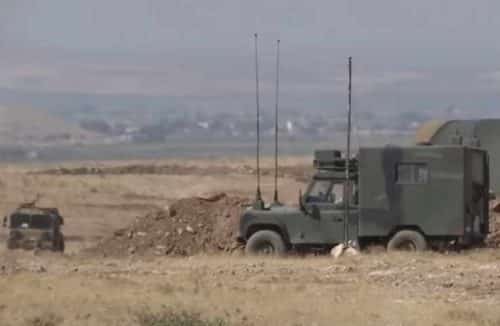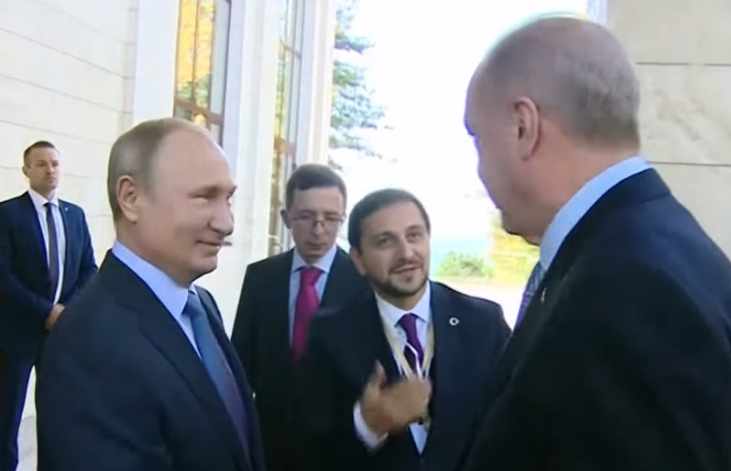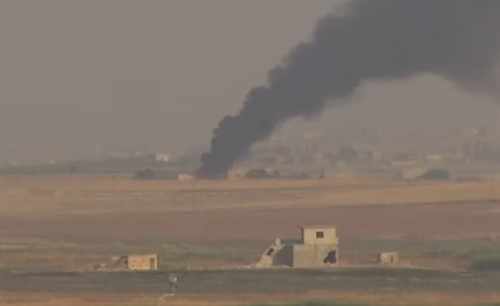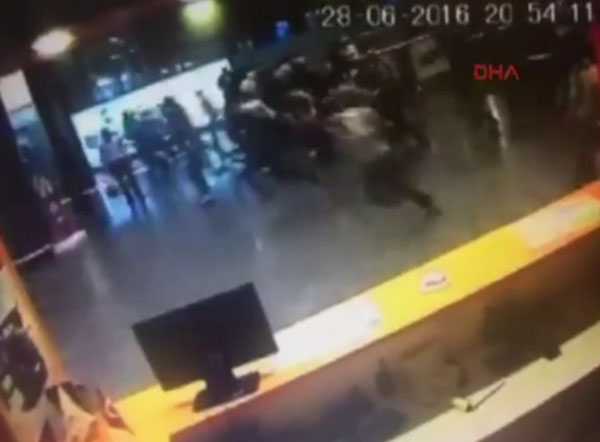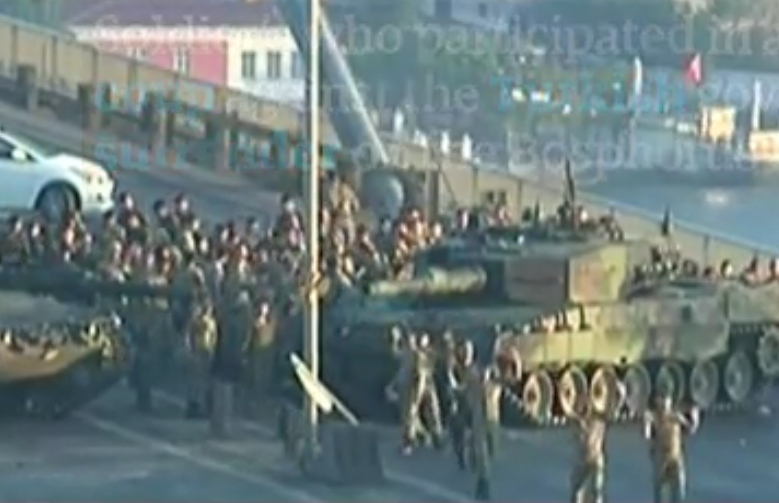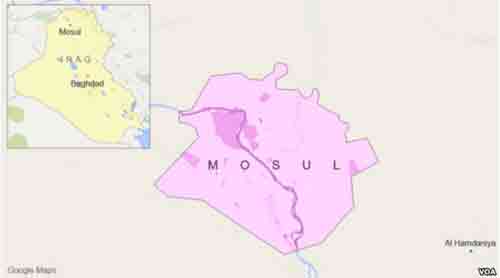WHITE HOUSE – U.S. President Donald Trump expects a “successful meeting” Thursday in Ankara as his vice president and secretary of state push Turkey to halt its offensive in northeastern Syria. Meanwhile, Trump continues to reject that he is responsible for the operation meant to push Kurdish fighters from the border region.
“If they don’t, the sanctions and tariffs and other things that we’re doing — we will do and are doing to Turkey — will be devastating to Turkey’s economy,” Trump said at a news conference Wednesday.
Trump has put his administration forward as being best placed to mediate between Turkey and the Kurds, which the United States relied on in its campaign to defeat Islamic State militants in Syria.
At the same time, Syrian ally Russia positioned itself as the best mediator between Syria and Turkey, after the Kurds partnered with Syrian President Bashar al-Assad’s forces to prevent being overrun by Turkish forces. Turkish President Recep Tayyip Erdogan is scheduled to follow his meeting with U.S. officials with a trip Tuesday for talks in Sochi, Russia.
Critics of Trump’s actions say his decision to withdraw U.S. forces from the region cleared the way for Erdogan to go forward with his long-planned offensive to create what he sees as a buffer zone to keep away the Kurdish fighters he says are terrorists linked with separatists in southeastern Turkey.
“I didn’t give him a green light,” Trump said Wednesday.
Turkey’s offensive, however, “didn’t surprise me,” said Trump of the action, which has quickly tilted the balance of power in northeast Syria and prompted Russia, Turkey and Iran to fill a sudden vacuum left when he ordered U.S. forces out of the region.
Trump told reporters he has no regrets about having 26 to 28 U.S. military personnel inside Syria stand aside as the Turks moved across the border.
“Syria doesn’t want Turkey to take its land. I can understand that,” he said. “But what does that have to do with the United States of America if they’re fighting over Syria’s land? Are we supposed to fight a NATO member, in order that Syria, who is not our friend, keeps their land?”
[content id=”79272″]
The president also termed the Kurds, the Pentagon’s allies in the battle against Islamic State terrorists, “no angels” themselves.
Trump said, the Kurdish PKK “is worse of a terrorist threat than ISIS.”
Syrian advances
The Turkish offensive, and subsequent deal between the Kurds and Syrian government, have brought Syrian forces back into areas of the country they had not controlled for years.
That includes moving Wednesday into the border town of Kobani, the site of intense clashes between the Kurds and Islamic State militants before Kurdish forces finally took control in 2015.
Meanwhile, a U.S. official told VOA that forces carried out an airstrike on the Lafarge cement factory near Kobani. U.S. forces and the Kurds had used the factory as a headquarters in their fight against Islamic State.
The official said the factory was blown up to prevent “outside forces,” specifically Russia and Syria, from using it.
Humanitarian concerns
The Syrian conflict, which began in 2011, had already created a humanitarian crisis in Syria with millions of people fleeing their homes and in need of aid.
An estimated 160,000 people have been displaced since the Turkish operation began last week, according to the U.N. refugee agency.
“The fighting compounds an already dire humanitarian situation in northeast Syria,” a UNHCR statement said. “Of the 3 million women, children and men in the northeast, 1.8 million were already in need of humanitarian assistance, including over 900,000 in acute need.”
The agency says the humanitarian community “has limited capacity to respond” to the needs of those living in the border region.
At the news conference Wednesday, Trump expressed deep concern about the Turkish offensive, noting the large number of civilian victims and warning it could lead to a resurgence of ISIS.
Congressional opposition
The U.S. House of Representatives approved a resolution Wednesday opposing Trump’s decision to end U.S. operations in Syria, calling on Erdogan to immediately cease military action and for the United States to continue supporting the Kurds.
It urges the White House to “present a clear and specific plan for the enduring defeat of ISIS.” A large number of Trump’s fellow Republicans voted for it.
Republican Sen. Lindsey Graham, a usually reliable Trump ally, bluntly criticized the president’s latest comments about the region.
“I worry we will not have allies in the future against radical Islam, ISIS will re-emerge, & Iran’s rise in Syria will become a nightmare for Israel. I fear this is a complete and utter national security disaster in the making and I hope President Trump will adjust his thinking,” Graham said on Twitter.
Graham, who sits on the foreign relations committee, said Trump’s words “completely undercut” efforts by Pence and Pompeo to end the conflict.
Erdogan is scheduled to visit the White House on Nov. 13. But he said whether his trip to the United States will still occur depends on the outcome of the discussions this week in Ankara with Pence and Pompeo.
Trump has already hiked tariffs on Turkish steel imports and called off negotiations on a $100-billion trade deal with Turkey.
Trump Wednesday also addressed concerns regarding the approximately 50 tactical nuclear weapons stored at a U.S. base in Turkey. The president’s response was that he is confident those weapons are secure.
“We have a great air base there,” said Trump. “It’s a large, powerful air base.”
VOA Pentagon Correspondent Carla Babb and VOA’s Kenneth Schwartz contributed to this report.
Source: VOA


